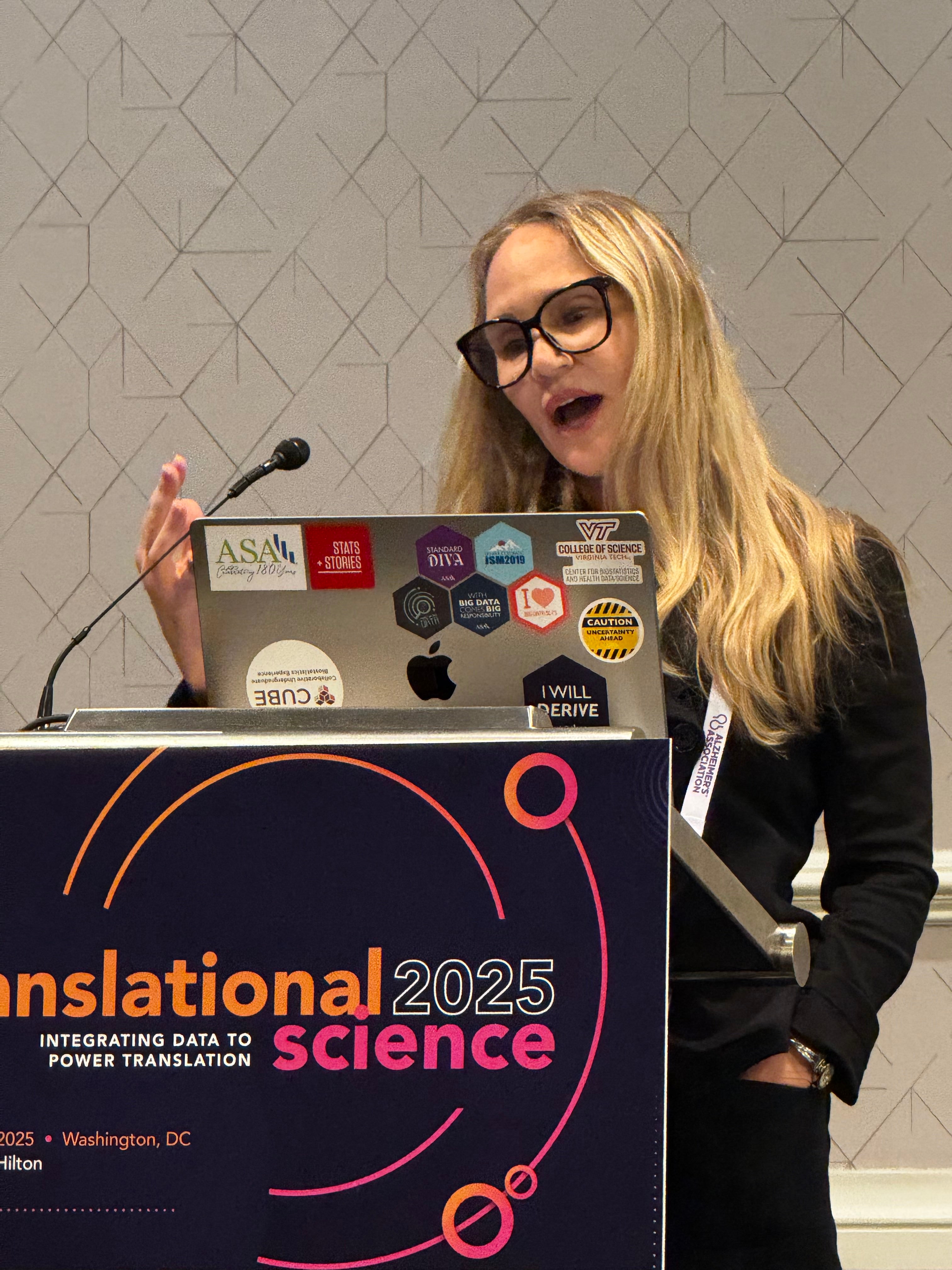Rigor and Reproducibility Conversation Continues at Translational Science 2025

At the Translational Science 2025 conference in Washington D.C., April 15-17, 2025, “Addressing Rigor and Reproducibility in Translational Science through the Community for Rigor (C4R) Initiative,” presented by Dr. Hanlon, highlighted the importance of rigor and reproducibility as critical components of credible scientific research, particularly in translational science, where errors or inconsistencies can have a direct impact on patient care and outcomes.

Despite growing awareness, challenges in ensuring rigorous and reproducible research persist. The Wednesday, April 16 conference session offered a detailed look at how lapses in rigor can lead to reproducibility failures, especially in translational research, where the complexity of variables and processes often exacerbates these problems.
Along with CBHDS Assistant Director Alicia Lozano, Michael Gionfriddo, and Hao Ye, Dr. Hanlon introduced the Community for Rigor (C4R), a National Institute of Neurological Disorders and Stroke (NINDS)-funded initiative dedicated to improving research practices through free, online educational resources. Over the past two years, C4R has developed a comprehensive suite of instructional units. These include modules on foundational concepts such as distinguishing between causation versus correlation, formulating valid research questions, searching the literature, power, p-hacking, randomization, blinding, and creating statistical analysis plans. C4R’s resources can be tailored for use in professional development, lab training, mentoring programs, and formal coursework. Upcoming C4R modules include pre-registration of studies, handling missing data, and strategies for minimizing bias.
Hanlon's collaborative work was recently published in the Association for Clinical and Translational Science's Journal of Clinical and Translational Science: "578 A guide to successful management of data science collaborative partnerships in academic health centers" presents efforts to design a flexible, comprehensive framework for data science units to cultivate sustainable, long-term relationships with clinical and translational science research units through best practices for improving the quality and efficiency of research conducted throughout academic health centers. This study is the work of leaders of data science units across six institutions, including regular CBHDS collaborator Gina-Maria Pomann.
To learn more about the Association for Clinical and Translational Science, visit https://www.actscience.org/



